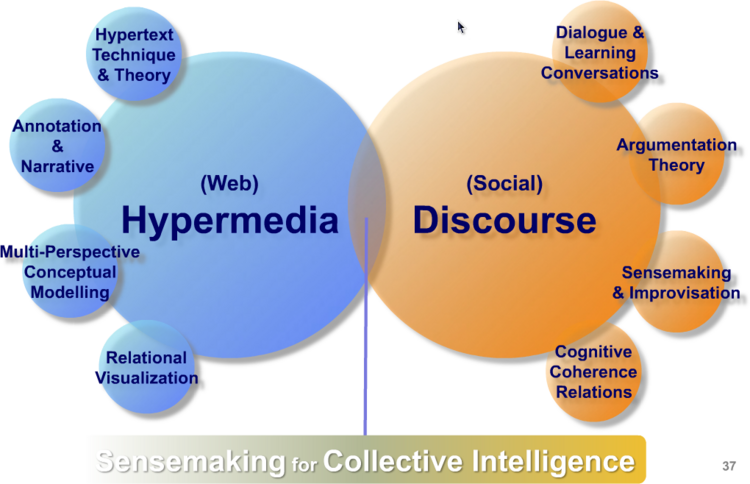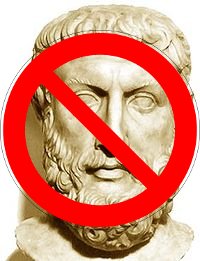Aug 2010 Semantic Mediawiki intro: Difference between revisions
(→Wikis) |
|||
| Line 142: | Line 142: | ||
= Licensing = | = Licensing = | ||
* Creative commons designed to make content clearly reusable | |||
** CC-BY | |||
** No derivatives, no commercial | |||
== Semantic Mediawiki = | == Semantic Mediawiki = | ||
Revision as of 11:34, 26 August 2010
Wikis are commonly used for group content development. Semantic Mediawiki adds easier to use forms and the ability to annotate distinct content such as places, people and dates for reuse in interactive views and queries. In this session, we'll look at how semantic wikis can be used to develop content for indigenous and linguistic communities, with a practical, hands on focus including how to create pages, categories and simple ontologies. We will focus on processes to make sites inclusive, and examine fair terms of re-use.
Web
- International
- Focused on presentation
- Anyone can create a site
- Network effect
- Hyperlinks
Wikis
- Portland Pattern Repository - 1995
Allows easy, quick editing of any page, usually by anyone.
- Types of wikis
- Personal wiki
- Group
- Organization
- Topical
- ...
Wikipedia
- 2001
- Anything accepted as notable, neutral point of view
- Careful controls on legal issues so content can be re-used
- Anyone who uses the Internet knows, uses, respects, understands it
- Cultural translations
- Few understand how it's edited
- Designed to be open, but adding controls
Mediawiki
- Free Software (GPL)
- Hundreds of thousands of sites
- Hundreds of extensions
- Page, not content manager
- Designed for open editing, can be closed
Wiki use and editing
On any wiki with critical mass:
- Readers
- Drive by editor
- Topic editor
- Nerd core
How to use a wiki
- Categories
- Many categories, ways of looking at things
- Anyone can manage them
- Recent changes
- wp vs small site
- Page history
- Page discussion - tags and backstory
- User pages
Editing wikis
- Wikis typical use their own markup (syntax)
- Rich/wysiwyg editors create messes
- Typical word processors adding junk, can't re-use for headings, can't compare versions
Progressive learning
- = heading 1 =
- * Bullet point
- [[Wiki link]]
- View source to learn from others
- Edit sections to compartmentalize changes
Brackets must be matched!!!!
Elements of markup
- Headings, bullets, tables, dividers
- HTML code - http://www.asiancanadianwiki.org/wiki/Main_Page
- Links - onsite and off
- Templates
Semantic
- Computers are not very good at understanding human language
- Adding meaning through relationships.
- Triples - expressing relationships
- Subject, predicate, object
- David lives in Montreal.
- David: subject
- Lives in: predicate
- Montreal: object
- Subject, predicate, object have their own relationships.
- Montreal is a city.
- A city is a place.
- Montreal is the English word for Montréal.
- What are the names for the place where the St Lawrence and Ottawa rivers meet ?
Web of data
- The text is the database.
- Making statements across web sites.
- Creating views based on multiple web sites.
- Across wikipedia: Places with populations between 100 and 10,000 with a
- Technical ontologies
- Classes (categories) - person, place, date
- Properties - birth date, birth place, current location, height
- Inference
- If a person (class) was born in Canada, they speak English or French
- Guessiness
- If a person (class) was born in Canada, they speak English or French
- Usefully and easily combine different data sources - data network effects
- Recipe from one site, ingredients from another
- Web searches that only include precise content
- Aggregate reviews from different sites

On Social Learning, Sensemaking Capacity, and Collective Intelligence
Licensing
- Creative commons designed to make content clearly reusable
- CC-BY
- No derivatives, no commercial
= Semantic Mediawiki
- Practical way of adding semantic data to wikis (mediawiki)
- Inline properties (annotations), classes (categories and templates)
trends
hands on
sites
thoughts
